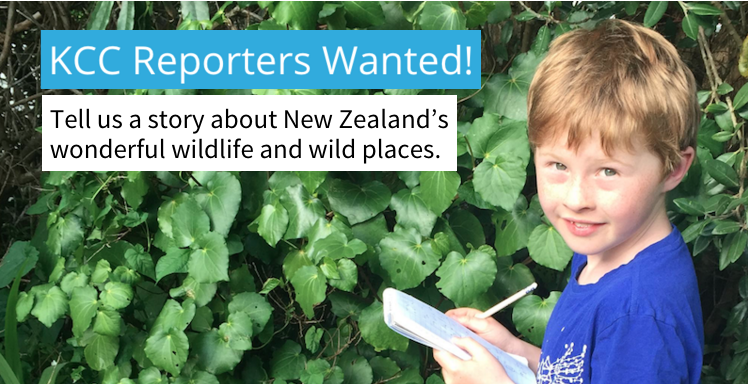
Hi, I’m Eden and I’m ten years old. Lately I’ve been learning about plastic pollution. It all started when my family and I found hundreds of tiny bits of plastic on a beach walk. From then on, I wanted to make an impactful difference and let everyone know how plastic is harming animals, our environment and even ourselves.
When a problem is really big, it can be hard to know what can be done about it. I started by looking at the plastic we use at home. My family and I did a plastic count and tallied up the plastic we use each week, from our weekly groceries. We sorted it out into groups by searching for the recycling number on each plastic product. We learnt which plastic can and cannot be recycled. We used this Ministry for the Environment link to help us.
I also learnt that we could recycle our soft plastics, such as cereal and bread bags, snack food bags, frozen food bags, chip packets, dry pet food bags and many more. Our supermarket has a soft plastic recycling bin that we are now using each week. To find out if there is soft plastic recycling in your area, check out this link.

Recycling is fantastic and helps to reduce the amount of plastic waste. But, it’s not the solution to plastic pollution. The amount of plastic we all use, is far more than what can actually be recycled. Many types of plastic can’t be recycled and will end up in landfill or in the environment. Plastic can only be recycled a certain number of times before it can no longer be recycled. That means eventually it will potentially end up back in the environment.
After my family and I found out how much plastic we were using, we all wanted to help to make a change. We realised how easy it was to buy too much plastic! Every time we go shopping now, we ask some questions. Does the same item come without being wrapped in plastic? If we have to buy this item, can it be recycled? Do I really need this item?
Ways to help reduce plastic
- Do your own plastic survey at home. In one week, count how much plastic your family uses. Tally up your totals. See if you can reduce your totals over time.
- In the UK, Greenpeace and Everyday Plastic have created ‘The Big Plastic Count’. There is a great tally sheet at the end of their document, which helped us. https://thebigplasticcount.com/media/The-Big-Plastic-Count-Tally-Sheet-Digital.pdf
- Find out what plastic you are using that is numbered 1, 2 and 5. These CAN be recycled. Plastic numbered 3, 4, 6 or 7 or with no number, can NOT be recycled. Where you can, try to buy the items that can be recycled.
- Recycling your soft plastic is fantastic. Find out more here https://www.recycling.kiwi.nz
- Try printing this Soft Plastic Recycling poster for your school. The link is below. https://www.recycling.kiwi.nz/application/files/8116/5275/5064/SP_RECYCLE_ME_0522.pdf
- Find alternatives for plastic products. For example, choose fruit and vegetables that don’t come in plastic bags.
- Each year you can take part in the ‘Plastic Free July’ challenge. Get your family, friends and school involved in this great event. https://www.plasticfreejuly.org
As kids, our school lunchboxes are a great place to start, when reducing plastic.
Simple swaps to reduce plastic in your school lunchbox
- Sandwiches – Replace cling wrap with reusable sandwich bags, wraps or beeswax cloths.
- Chips – Instead of chip multi-packs, buy one large bulk packet.
- Fruit – Chose fruit and vegetables that don’t come in plastic packaging.
- Biscuits and Crackers – Avoid food items that come in individual plastic wrappers.
- Cheese – Instead of buying processed cheese slices, buy large cheese blocks and slice your own cheese.
- Muesli bars – Ditch the plastic and bake your own healthy granola bars.
- Yoghurt – Instead of 6 or 12 packs of yoghurt buy large tubs and put the yoghurt into a lunchbox pot. Check the recycling number, as most small pots are number 6 and can’t be recycled.
- Single use plastic bottles – Avoid these please! Always have a reusable drink bottle. I prefer my stainless steel, BPA free bottle, because it keeps my water refreshing and cold all day.

If we all work together, we can make an impactful difference. If nobody changes their ways, the problem will only get worse and never better. Please spread the word. We can all help to solve the plastic pollution crisis.
EDEN’S GRANOLA BARS RECIPE
Instead of buying muesli bars in plastic you can make your own. You can put these delicious bars in your school lunchbox or have them as a snack.

Ingredients
Dry: Add 4 cups of dried ingredients of your choice (you can vary these amounts depending on what you like).
- 1 ½ cups of rolled oats
- ½ – 1 cup of coconut
- ½ cup of nuts of your choice e.g. almonds, hazelnuts, peanuts, pecan. Whole or chopped.
- ½ cup of seeds of your choice e.g. sunflower, chia, hemp, pumpkin, sesame
- ½ cup of dried fruit e.g. sultanas, raisins, dates, apricot etc.
- ½ tsp of cinnamon
Wet: Mix up 1 cup of peanut butter and honey, to make the dry ingredients stick together.
- ½ cup of honey (Or rice malt syrup)
- ½ cup of peanut butter (OR hazelnut, almond, cashew butter)
- 1 tsp of vanilla essence (optional)
Instructions
- Combine dry ingredients into a bowl. Stir well.
- Add wet ingredients into a saucepan, mix well. Keep stirring throughout cooking process!
- Heat on med-high until mixture starts to bubble around edges. Turn down to low heat.
- Keep stirring for another 1-2 minutes to smooth any clumps.
- Add heated mixture to dry ingredients.
- Stir until all ingredients are moist.
- Place mixture into a small baking tray, lined with baking paper.
- Press mixture firmly down, until the top is flat.
- Bake in oven for 10 mins on 180 degrees (or until golden brown)
- Wait 30 minutes until mixture is cool.
- Put into the fridge for 1 hour then slice into small bars.







